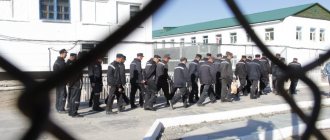It is necessary to distinguish between arrest and detention. Only judicial authorities have the right to impose arrest, either as a preventive measure (only in home form) or as a final punishment. Reasons for restricting freedom in the form of a preventive measure may be suspicions of law enforcement officers that a person:
- may destroy evidence;
- will threaten witnesses or interfere with the fair and thorough examination of the case;
- will continue to commit crimes;
- will escape justice.
Arrest as a final punishment is imposed for crimes of minor gravity. The main differences between detention and arrest as a preventive measure and as a punishment:
| Action | Who has the right to commit? | Term |
| Detention | Policemen | Up to 48 hours, unless the court decides on a longer detention or a preventive measure (Article 14 of the Law “On Police”) |
| House arrest (preventive measure) | Court | Up to 2 months. In exceptional cases, the period may be extended if law enforcement agencies have not found sufficient evidence (Article 107 of the Criminal Procedure Code (CCP) of the Russian Federation). |
| Arrest (punishment) | Court | From 1 month to six months. If arrest replaces compulsory work, then the punishment may last less than 30 days (Article 54 of the Criminal Code (CC) of the Russian Federation). |
It happens that for some unfounded reason, police restrict a person’s freedom for more than 2 days without providing a court decision.
Similarly, the preventive measure or type of punishment in the form of arrest chosen by the court may be unfair. Especially if the person is innocent or has not committed serious offenses. In this case, it makes sense to seek help from a lawyer specializing in criminal cases and revocation of arrest.
Do you want to figure it out, but don’t have time to read the article? Lawyers will help
Entrust the task to professionals. Lawyers will complete the order at the cost you specify
25 lawyers on RTIGER.com can help with this issue
Solve the issue >
Rules of conduct during arrest
If a person has been arrested, he should follow the following rules of conduct when interacting with law enforcement officials:
- remain silent - all authorized persons need to know is their full name. the detainee and his residence address, passport details, and other testimony should be given only in the presence of a lawyer in order to avoid pressure from interrogators or distortion of information;
- do not resist law enforcement officers, do not try to escape or fight off the police - they are trained to resist criminals, and even the slightest disobedience can lead to both harsher future punishment and harm to the moral and physical well-being of the prisoner;
- do not insult authorized persons in order to avoid the imposition of additional fines;
- do not try to joke or appeal to the conscience of those restricting the freedom; they fulfill their duties and will not perceive the emotional outbursts of the detained or arrested person;
- check the pockets of your clothes and bag to make sure that there are no prohibited items in them (pocket knives, lighters, drugs, etc.), try to get rid of these items unnoticed;
- check whether law enforcement officers have planted anything in your pockets or in your apartment; if you find suspicious things, you should also try to get rid of them quietly without bringing charges against the arresting persons;
- do not sign any protocols before reading them, and do not sign documents containing your alleged confession of committing a crime.
Important! In accordance with Art. 54 of the Criminal Code of the Russian Federation, arrest is unacceptable in relation to mothers with children under 14 years of age, pregnant women and minor children.
Plenum of the Supreme Court: arrest is possible for any crime
Photo: supcourt.ru The Plenum of the Supreme Court of Russia at its next remote meeting made changes to its previous decisions on criminal cases. In particular, he pointed out that arrests of suspects and accused were not necessary, but he also allowed directly opposite options. He also gave explanations on the application of several norms of the Criminal Code and Criminal Procedure Code.
Arrest is not mandatory, but possible
Attempts to formulate more or less clear criteria for courts when choosing a preventive measure are constantly being made by the Supreme Court. This time, his explanations again note that courts can choose preventive measures for those involved in cases only if there are sufficient grounds to believe that they will continue to engage in criminal activities, or will threaten witnesses, or destroy evidence in the case. But even in this case, the courts have the right not to choose strict measures.
However, what grounds are considered “sufficient”, the Supreme Court does not explain, which actually preserves the current state of affairs. Moreover, the Supreme Court confirms the possibility of arrests against those suspected of minor crimes. However, if the court nevertheless decides to limit itself to a more lenient measure, then this cannot be prevented even by any of the circumstances of Article 108 of the Code of Criminal Procedure (the suspect does not have a permanent place of residence in the Russian Federation, his identity has not been established, he violated a previously chosen preventive measure, he fled from preliminary investigation authorities or from the court).
Discipline the investigation
Separately, the plenum touched upon the courts' consideration of requests to extend arrest, which investigators often justify with arguments about the impossibility of completing the investigation in a timely manner. The Supreme Court pointed out the need to pay attention to the investigator’s (interrogating officer’s) compliance with the requirements of Article 109 of the Code of Criminal Procedure of the Russian Federation. It states, in particular, that a request to extend the arrest must be submitted no later than 7 days before its expiration.
“In the case when a petition to extend the period of detention is brought before the court repeatedly and on the basis of the need to carry out investigative actions specified in previous petitions, the court must find out the reasons why they were not carried out. If the reason, in the opinion of the court, is the ineffective organization of the investigation, this may be one of the circumstances leading to the refusal to satisfy the petition. In such cases, the court has the right to respond to identified violations by issuing private rulings,” the Supreme Court said.
House arrest, bail, or prohibition of certain activities
House arrest, according to the plenum, can be chosen if it is impossible to use a more lenient preventive measure, including bail and a ban on certain actions. However, the Supreme Court considers this preventive measure to be quite harsh, and therefore recommends that courts apply it in exceptional cases.
At the same time, the courts may bring up issues regarding the choice of bail for discussion by the participants in the hearing, even if the parties to the case did not request this.
“Preventive measures in the form of detention, house arrest, bail or a ban on certain actions are valid until the verdict enters into legal force, regardless of whether it is appealed,” notes the Supreme Court. He also "calls to the attention" of appellate courts that they must scrutinize arrest orders carefully. Their resolutions must contain specific reasons for which a particular decision was made.
Fraud and business
The plenum also made changes to the decisions regarding the consideration by courts of specific categories of cases. The Supreme Court recalled that a number of “entrepreneurial” cases from the Criminal Code are cases of exclusively private prosecution and cannot be initiated without statements from victims. These include articles of the Criminal Code: 159.1–159.3, 159.5, 159.6, 160, 165, part 1 of Art. 176, art. 177, 180, 185.1, part 1 of Art. 201 of the Criminal Code of the Russian Federation.
In turn, criminal cases under Articles 198–199.1, 199.3 and 199.4 of the Criminal Code of the Russian Federation can be initiated only on the basis of materials from the tax authority or the territorial body of the insurer, the Supreme Court points out.
The Supreme Court also returned to the issue of arrests of businessmen. The Plenum noted that the Code of Criminal Procedure prohibits taking them into custody for crimes committed in connection with business activities. According to the Supreme Court, courts should check whether the investigation’s petitions contain specific information indicating the opposite. “In the absence of the specified information, such a request cannot be satisfied,” the document says.
“The presence in the decision to initiate a petition to select a preventive measure in the form of detention and the materials attached to the decision indicating the mercenary motive of the suspect or accused, as well as the method of disposing of the stolen property (for example, he appropriated it personally or used it for business purposes) cannot serve as a basis for recognizing the act as committed without connection with the implementation of entrepreneurial activity,” the Supreme Court also indicated.
In addition, the plenum forbade taking the word of those accused of tax evasion (Article 199 of the Criminal Code of the Russian Federation) that they will compensate for the damage. This circumstance does not provide grounds for releasing them from criminal liability.
At the same time, the imposition of punishments on entrepreneurs should not be predetermined by the fact that they are in custody, the Supreme Court points out.
The full text of the explanations of the Plenum of the Supreme Court can be found here.
What types of arrest are there?
As of 2021, only two forms of arrest are used in Russia:
- House arrest;
- Stay of the sentenced person in the arrest house.
In order to impose arrest as punishment, the court must assess the severity of the crime and determine whether the reasons for choosing arrest are:
- The severity of the crime committed;
- Physical condition of the convicted person, medical indicators;
- Marital status, presence of minor children;
- Characteristics from a psychologist and friends;
- Age of the convicted person;
- Attitude towards the crime committed;
- Whether the crime was committed for the first time;
- The circumstances in which the crime was committed.
Arrest house
The next most severe punishment is the convict’s stay in an arrest house, chosen as a place of strict isolation of criminals from society. As a rule, punishment in the form of arrest is chosen for the “stumbled” category of criminals.
You can be assigned to stay in a house of arrest if:
- The convicted person does not have a permanent place of residence;
- The personality and characteristics of the convicted person do not allow the court to trust him;
- The convict was already under house arrest, but violated the rules of residence and the terms of his sentence;
- During the investigation, the convict was hiding from the justice authorities.
Unlike being under house arrest, a house of arrest prohibits the prisoner from leaving the territory of the house. Exceptions are situations and conditions that are dangerous to the life of the convicted person:
- Force Majeure;
- Natural disaster, fires;
- Attack on the arrest house;
- Threat to the safety, life and health of the convicted person;
- Serious illness of a prisoner requiring inpatient treatment in a medical institution.
If internal conflicts arise and for other valid reasons, the law allows the arrestee to be transferred to another arrest house.
In fact, the conditions of stay and detention of a prisoner in a house of arrest are often stricter than in many general or strict regime colonies. House rules include;
- Prohibition on communication with family, friends, friends;
- It is prohibited to receive and send parcels and parcels;
- Purchase of food products for more than the amount calculated using the formula “minimum wage + 20%”.
- Exchange of emails and messages is prohibited;
- Telephone calls are allowed only in extreme circumstances (death or illness of a relative;
- The prisoner is required to work 4 hours a day, without receiving pay.
Nevertheless, prisoners have the right to daily one-hour walks in the fresh air.
If military personnel are arrested, they must be sent to a guardhouse ten days before being sent to the place where they are serving their sentence. In addition, military personnel serve their sentences separately from civilians, and officers from privates.
Arrest in enforcement proceedings
Arrest in enforcement proceedings involves drawing up an act of seizure, which is more often known in everyday life as an inventory of property. This procedural action is carried out by bailiffs. Grounds for seizure of property: judicial acts, executive documents of other authorized bodies, which are specified in the law on enforcement proceedings (No. 229-FZ). This procedure is strictly regulated. So, for example, if there are no witnesses during the inventory, then this will be an illegal seizure of property. The imposed enforcement measures and restrictions will be lifted only when the bailiff issues a decision to lift the arrest.
What is an arrest: general information
First, let us understand the terminology. Arrest is a measure of punishment for a citizen who has committed a criminal offense. Arrest is established by a court decision, and not by sentence. The main requirement of arrest is the isolation of the convicted person from society and contacts with the “outside world.”
Most often in our country, arrest is chosen as a preventive measure of punishment, chosen with the aim of preserving a person’s future and giving him the opportunity to improve. As a rule, such a shock occurs if a person has broken the law for the first time.
The court has the right to choose arrest as a criminal punishment in the following cases:
- If a more lenient punishment can be imposed for the crime committed under the Special Part of the Criminal Code;
- If there are conditions and life circumstances that require a more lenient sentence, regulated by Article 64 of the Criminal Code of the Russian Federation.
- The jury's decision to render a verdict of leniency for the convicted person is part 2 of article 65 of the Criminal Code of the Russian Federation.
- Changing the remaining part of the punishment with milder sanctions is Article 80 of the Criminal Code of the Russian Federation.
- Use arrest as a substitute for community service previously assigned as punishment if the convicted person evaded them or performed them in bad faith (Articles 49-50 of the Criminal Code of the Russian Federation).
Arrest is considered the main type of criminal punishment, which cannot be replaced by a suspended sentence.
As a rule, in practice, convicts serving a sentence of arrest are subject to the same rules of detention as prison inmates.





